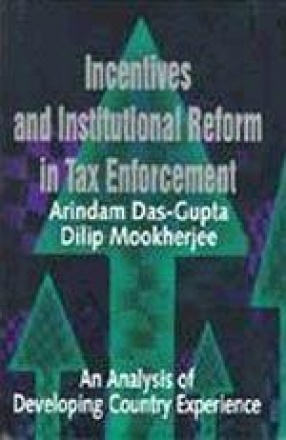In developing countries, structural reform of income tax that neglects the reform of the tax administration has rarely proved successful. Why are taxes harder to collect and compliance with tax laws lower in developing countries? What administrative measures make for effective tax reform? These two economists argue that the enforcement dimension of tax administration is central to the issue. They draw on information culled from extensive field visits to tax offices in six countries, including detailed examination of forty-two tax offices in India alone. The first part of the book constructs a theoretical framework that helps to analyse the Indian experience in detail. By combining econometric analysis with a rich description of the organization and functioning of the Indian tax administration, they are able to identify important administrative weaknesses. The second part of the book examines the reform experiences of other developing countries in Asia and Latin America. A recurring theme in this volume is the close association between successful reform and improvements in enforcement. This book extracts lessons from recent international experience to suggest specific administrative reforms for India. This detailed analysis of a key institutional impediment to the process of economic development and the identification of specific reform measures will interest postgraduate students, researchers, academics and policy-makers.
Incentives and Institutional Reform in Tax Enforcement
In stock
Free & Quick Delivery Worldwide
reviews
Bibliographic information
Title
Incentives and Institutional Reform in Tax Enforcement
Author
Edition
1st ed.
Publisher
ISBN
0195642864
Length
xv+478p., 23cm.
Subjects








There are no reviews yet.